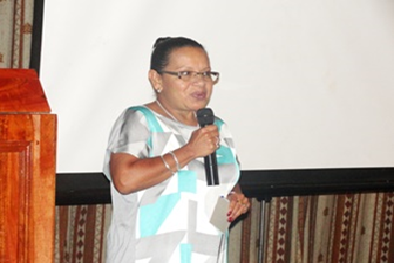GWP SA’s support has chiefly been through the support of consultative workshops aiming to integrate water security and climate resilience in development planning. However the need for partnerships with other sectors is key due to the cross-cutting nature of climate change.
The entire process is being facilitated by the Institute of Environmental Studies (IES) of the University of Zimbabwe, which has been contracted by the Ministry of Environment, Water and Climate (through the Climate Change Office) to facilitate the development of a National Climate Change Response Strategy that fully and accurately reflects the interests, concerns and preferences of all key stakeholders in Zimbabwe on issues of climate change, adaptation and mitigation.
As part of the consultation process, GWP participated in the 2nd National Consultative Workshop on the Draft National Climate Change Response Strategy, which was held on 29-30 January 2014 in Harare. This workshop brought together the key supporting partners (COMESA, UNICEF, and UNDP) who each reemphasized their support in the NCCRS process. Speaking at the workshop, GWP SA’s Executive Director, Ms Ruth Beukman re-emphasized the importance of partnerships in aligning national processes to regional (SADC) and international (AMCOW) practices and securing stakeholder contribution to the National Climate Change Response Strategy for Zimbabwe. She further reaffirmed GWP SA’s commitment to working with the Ministry of Environment, Water and Climate on its national initiatives on water, climate change and development issues.
Over 120 participants, comprising top government officials, NGOs, the Climate Change Office, UNDP and COMESA attended the 2nd Consultative workshop. The participants were technical specialists representing the key sectors of water, energy, agriculture, local government (including traditional leader), youths, gender, civic society, health and environment to review the action plans for the strategies developed. Report back sessions from the working groups emphasized the need to have integrated strategies and action plans that must be supported and implemented.
GWP SA has been involved in this process to ensure that water related issues are not only covered in the water sectors but are also covered in other sectors since water is cross cutting. A consultant has been engaged by WACDEP Zimbabwe to track all the workshops and produce reports which have fed into the draft main NCCRS document. During the workshop, GWP SA was represented in the ‘Water Resources’ group to scrutinize the NCCRS document and ensure that water and climate change issues identified from grassroots stockholders and WACDEP Zimbabwe are supported in the strategy. So far, three consultative workshops targeting sub-catchment and catchment councilors (grassroots water managers), local governance from western districts and water related sectors have been supported. The fourth and final workshop which will present the final strategy to the steering committee of Permanent Secretaries and Ministers will be supported by GWP SA through WACDEP Zimbabwe.
GWP SA’s participation in this process has promoted the operationalization of the Water, Climate and Development Programme (WACDEP) through WACDEP Work Package 2: on supporting National Developments and Sector Plans. WACDEP is an AMCOW programme set u in response to the July 2008 Sharm el Sheikh Declaration on Water and Sanitation. In response to the climate change commitments in this declaration, AMCOW in collaboration with GWP, developed the Water, Climate and Development Programme.
